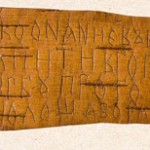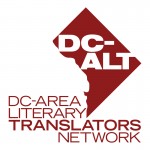Poetry in Translation Issue
Volume 16:3, Summer 2015
 How should a poem be translated? What makes a “good” translation? All translators develop working answers to these questions, and the answers are as creative and individual as the translators. Some translators seek simply to convey the literal meaning of original texts. Others approximate or adapt meter, rhyme, or other music and sound patterns from the source language into English. Still others prioritize issues of tone and register when moving from one language into another; they might also consider tweaking an “old” or culturally remote poem for a contemporary audience. Some translators adapt very freely, “sampling,” re-ordering, or otherwise altering the original poem for artistic reasons.
How should a poem be translated? What makes a “good” translation? All translators develop working answers to these questions, and the answers are as creative and individual as the translators. Some translators seek simply to convey the literal meaning of original texts. Others approximate or adapt meter, rhyme, or other music and sound patterns from the source language into English. Still others prioritize issues of tone and register when moving from one language into another; they might also consider tweaking an “old” or culturally remote poem for a contemporary audience. Some translators adapt very freely, “sampling,” re-ordering, or otherwise altering the original poem for artistic reasons.
The practice of translation, then, varies considerably; there is significant difference even among the three guest editors who compiled this edition of Beltway Poetry Quarterly. But while each of us approaches translation differently, we did settle on some general principles for the poems presented here:
* The translation itself should exhibit obvious linguistic and emotional fidelity to the source poem.
* The poem should be a good poem in its own right, both in the original language and in English. On this seemingly subjective criterion there was a surprising degree of consensus among the editors: we found that if a poem lacked some essential quality in the original language, it was unlikely to become a successful poem when translated into English.
* The translator should have worked from a source language other than English (not just from earlier translations into English).
* The translator should have secured appropriate permissions from the copyright holder(s) to publish the translation, as well as the original poem—an ethical imperative (and standard publishing practice) that respects the work of the original poet.
* There is no “final” translation. While most of the work presented in this edition is from contemporary poets, some translators offered exciting new interpretations of poets who have been translated many times before.
 In this issue of Beltway Poetry Quarterly we present 35 poems from 13 languages ranging from Vietnamese to Frisian. The poems were produced by 25 translators working in the greater Washington, DC, region. For some of the translators, this represents a first publication; for others, it’s the latest in a long list of translation credits. Many of the translators are respected English-language poets in their own right. In several cases, the translators here reclaim work no longer available in print; in others, they present poets for the very first time in English.
In this issue of Beltway Poetry Quarterly we present 35 poems from 13 languages ranging from Vietnamese to Frisian. The poems were produced by 25 translators working in the greater Washington, DC, region. For some of the translators, this represents a first publication; for others, it’s the latest in a long list of translation credits. Many of the translators are respected English-language poets in their own right. In several cases, the translators here reclaim work no longer available in print; in others, they present poets for the very first time in English.
This issue of Beltway Poetry Quarterly was co-edited by three founding members of DC-ALT, the DC-Area Literary Translators Network, whose mission is to foster a community of literary translators and to promote the art of literary translation in the greater Washington, DC, area. The translations showcased here speak to the diversity of language and culture represented in our own neighborhood—a neighborhood where the whole world really does live.
 Nancy Naomi Carlson
Nancy Naomi Carlson
Katherine E. Young
Suzanne Zweizig
Nancy Naomi Carlson is the recipient of grants from the National Endowment for the Arts, the Maryland Arts Council, and the Arts & Humanities Council of Montgomery County. Carlson is author of four books of poems and translator of six books from French to English, including An Infusion of Violets (Seagull Books, 2019), recently named a "New & Noteworthy" title by the New York Times Book Review. A senior translation editor for Tupelo Press, her work has appeared in APR, The Georgia Review, The Paris Review and Poetry. Her website: nancynaomicarlson.com/ To read more by this author: Summer 2005 issue
Katherine E. Young is the author of Day of the Border Guards (University of Arkansas, 2014), a finalist for the Miller Williams Arkansas Poetry Prize, and two chapbooks: Van Gogh in Moscow (Pudding House Press, 2008), and Gentling the Bones (Finishing Line Press, 2007). Her poems have appeared in Prairie Schooner, The Iowa Review, and Subtropics. Young is also the translator of Farewell, Aylis by Azerbaijani political prisoner Akram Aylisli (Academic Studies Press, 2018), named one of 2018's "Eleven Groundbreaking Works" by Words Without Borders; as well as Blue Birds and Red Horses (Toad Press, 2018), and Two Poems (Artist's Proof Editions, 2014), both by Inna Kabysh. Her translations of Russian-language authors have appeared in Asymptote, The Los Angeles Review of Books, The Penguin Book of Russian Poetry, Words for War: New Poems from Ukraine, and 100 Poems About Moscow: An Anthology, winner of the 2017 Books of Russia Award in Poetry; several of her translations have been made into short films. Young was named a 2015 Hawthornden Fellow (Scotland), a 2017 National Endowment for the Arts translation fellow, and a 2020 Arlington (VA) Individual Artist Grant awardee. From 2016 - 2018 she served as the inaugural Poet Laureate for Arlington, Virginia http://katherine-young-poet.com/ To read more by this author: Evolving City Issue, and Museum Issue
Suzanne Zweizig's poetry has appeared in 32 Poems, Barn Owl Review, Beloit Poetry Journal, Subtropics, and RHINO. She has received fellowships from the MacDowell Colony, the Virginia Center for the Creative Arts, and was a semi-finalist for The Nation/Discovery prize in 2003. Zweizig holds a PhD in English from the University of North Carolina, Chapel Hill and an MFA in poetry from the University of Florida. After seven years living in Europe and the Middle East, she currently lives in Washington, DC.